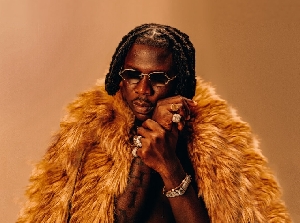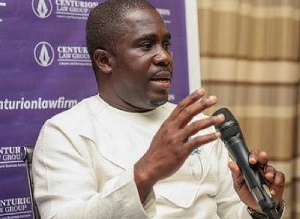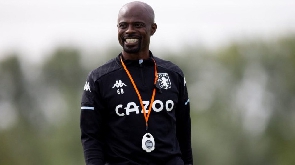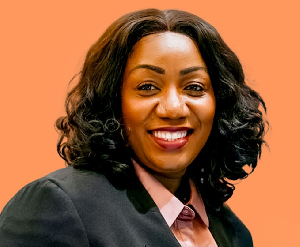By Kwame Okoampa-Ahoofe, Jr., Ph.D.
Garden City, New York
March 5, 2015
E-mail: okoampaahoofe@optimum.net
The suggestion by Dr. Kwesi Aning, Head of Research at the Kofi Annan International Peacekeeping Training Center (KAIPTC), that a media blackout be placed on the current controversy raging between the country's Christian and Muslim communities, as a means of calming down raw nerves, is rather lame and untenable (See "Security Expert Urges Blackout On Christian-Muslim Brouhaha" Starrfmonline.com / Ghanaweb.com 3/5/15).
It is lame because it naively presupposes that simply closing one's eyes to a fast festering and potentially lethal problem would make that problem vanish into thin air. No such tack of reasoning could be more preposterous. I have said this before and hereby reiterate the same, that a global dialogue needs to be opened up on the general treatment of Christians in predominantly Muslim countries, including Saudi Arabia, the global citadel of Islam, because clearly this is the source of the entire Christian-Muslim conflict worldwide.
In the case of the predominantly Muslim countries, the focus must be placed on the Arab world. For on the whole, it goes without saying that Muslims are, by and large, treated with respect, tolerance and understanding in predominantly Christian countries across the globe than vice versa; and it is rather absurd for Muslims resident in predominantly Christian countries to suppose that, somehow, they have a right to summarily stiffle religious diversity, particularly with regard to the cultural integrity of Christianity but, somehow, Christians have absolutely no right to return the favor, as it were.
What Ghanaian Christian leaders are saying here is that schools and academies founded by Christian missionaries have an inalienable democratic right to thoroughly enforce the ideological and religious practices that have made those schools and academies the enviable citadels of progressive learning that they have become in the country over the decades, and whose cynosure attracted those Muslim students attending these Christocentric schools, in the first place.
Muslims, as well, are entitled to preserving their integrity in the same manner if they so choose. In other words, the notion that Muslims who opt to attend Christian missionary schools, somehow, have an inalienable right to creat their own independent sanctuaries within those exclusive Christian spaces is what is clearly at issue here. And I firmly believe that both the Ghanaian and global Christian community ought to send the ultra-conservative and anti-Christian Muslim countries an unmistakably strong signal that globalization ought not to be a one-sided approach to tolerance, respect and understanding whereby only Christians observe these civilized tenets of peaceful coexistence.
Once this behavioral fact and reality is accepted and accorded practical relevance by the global Muslim community and its leaders, then and only then can we begin to feel comfortable with granting the sort of concessions being unilaterally demanded by our Ghanaian Muslim brothers and sisters. Indeed, even as I write, the global Muslim community is widely known to maintain an imperialistic male-chauvinist attitude towards inter-faith or interreligious marriages, whereby any non-Muslim man wishing to marry a Muslim woman is required to first convert to Islam and not vice versa. In Ghana, the most recent example involved renowned journalist and media operative Mr. Kweku Baako who assumed the new convert's name of Malik Kweku Baako.
And on the latter score, it is equally significant to point out the fact that, for the most part, no insistent demands for Christian conversion are generally made of Muslim men intending to cross faiths in order to conjugally cohabit with women of Christian faith and suasion. In other words, Dr. Aning may be partially right that presently simmering controversy between Ghanaian Muslim and Christian leaders could well become a "tinderbox" for national civil strife in the offing. But in practical terms, the issue has an unmistakable global dimension.
And here also, it goes without saying that some radical Ghanaian Muslims appear to be stubbornly and mischievously pushing the proverbial envelope, because they erroneously appear to have woefully underestimated the steely resolve of their Christian brothers and sisters not to be pushed around or taken for granted.
_______________________________________________________________
Opinions of Tuesday, 10 March 2015
Columnist: Okoampa-Ahoofe, Kwame
No Media Blackout On Christian-Muslim Controversy In Ghana, Please!
Entertainment

















